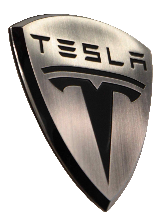HUMANITIES

YEAR 11 BUSINESS MANAGEMENT STUDENTS - RESEARCH TASK DURING REMOTE LEARNING!
Year 11 Business Management students undertook research on the impact that the business environments have on multinational organisations. Students researched over a three week period as part of remote learning. Some students focused upon the impact COVID-19 has had on their nominated business. Their research included how businesses adapted and responded to the pandemic. Their research also shows how critical it is for business to be able to adapt to both this unforeseen virus and other environmental pressures. Here are some of their responses!
Marie Lucarelli
VCE BM Teacher
Tesla - Technology issues
Elon Musk has released new plans in collaboration with a Chinese company that they have designed new batteries that can last 1 million miles in a Tesla vehicle. Elon Musk has stated that these batteries are low cost and it will enable the company to sell vehicles at the same price as gasoline vehicles and maybe even less while generating profit. Tesla has just found a way to dominate the market more than it already has done so by appealing to customers with an environmentally friendly, luxurious and soon to be a competitively priced vehicle. Tesla continues to innovate and find ways to be ahead of the automobile market through the use of technology.
Bridget Chapman & Ron Shamrak
Woolworths - Societal attitudes
Social attitudes have definitely changed in the last few months due to COVID-19, in relation to Woolworths and other similar businesses. Woolworths were one of the few stores to be a target of 'panic buying/hoarding'. In this case it was the fear that it would be law to self-isolate, and it would not be possible to purchase these essential items: toilet paper, pasta, and hand sanitiser. Due to the COVID-19 outbreak, online shopping became instantly much more popular, in some parts, this was the new social norm. People ordered what they required online and their goods were delivered by a Woolworths truck, to their front door! Woolworths took it further and made sure our elderly were a priority for these deliveries showing their sound corporate social responsibility.
Digby Stannus & Liam Ayres
Woolworths - Technology
Another new piece of technology Woolworths is currently trying out is the artificial intelligence enabled scale. These new scales automatically recognise the type of fruit or vegetable that is being weighed. This machine showed a stone fruit being placed on the scale. The machine recognised it as either a peach or nectarine, making this process much more convenient for customers when they are paying for their groceries.
Will Kay
McDonald's - Legal Factors
In light of the COVID-19 pandemic, our government has instituted new laws which affect McDonald’s business in Victoria. A state of emergency was announced which granted Daniel Andrews emergency powers. The coronavirus and the laws that have come with it can be considered as being part of the macro-environment. For example, before stage 3 restrictions were lifted, restaurants and cafes were not allowed to have customers dine in. Customers could only come through the drive-thru, order through a third-party application (Uber Eats) or pick up their food from the restaurant. This has negatively affected the business, as less people are ordering food online (due to fears of contracting COVID-19 from the workers at McDonald’s or the delivery drivers) and less people are inclined to visit the restaurant. McDonalds has gone above and beyond their legal business requirement by constantly sanitising desktops, kitchen equipment, hands and more, as well as requesting card or visa payment instead of cash.
Liam Ben-Moyal & Joshua Plumb
UBER - Economic conditions
From driver earnings, to community spending, to increased mobility options, riders and drivers who use Uber are having a substantial impact on the economy. Due to the COVID-19 situation, Uber has resulted in lower interest rates and unemployment has increased. This is because of the negative effect COVID-19 has had on the economy, resulting in less people needing a ride as they are forced to stay home. For Uber, the total interest repayments vary between $4,290 and $14,531 over the life of the loan. This has increased due to the economic downfall during this time, which has resulted in reducing the likelihood of Uber making a large profit, and therefore will undoubtedly influence the business owner’s planning.
Taya Minin & Tayla Gustin-Edwards
APPLE - Technology and technological issues
Due to COVID-19 it has become evident that the majority of affected people are now spending way more time on social media and other technological platforms than they usually do. Apple has definitely had a positive impact on their operations in light of this. As such, everyone's average screen time has increased and an even more shocking finding is that it has risen by 30%. A spokesperson for the ‘Independent’ said that screen time has risen by 118% since he’s been locked inside! This has improved Apple’s operations and even sales, as the more people online, the more likely it is for them to shop and Apple usually makes some sort of profit through these smaller sales (when done on their devices). As a result of people spending so much time online, and sometimes encountering problems, Apple have brought out more phones and other gadgets that they are sure their customers will be quick to grab and buy!
Steph Tsitas
COLES - Consumer influence
Due to the COVID-19 crisis, shopping can be a dangerous task for those who are aged over sixty. Coles have recognised that they need to protect their vulnerable customers and give them the same opportunity to get their groceries as everyone else. Thus, the community hour was created. The community hour happens everyday from 7am to 8am. On Monday, Wednesday and Friday for the elderly. This hour happens before the stores are open so everyone who shops in that window has access to all groceries that they need to live. In addition, this opportunity is also available for those with disabilities and their carers. Furthermore, Tuesday and Thursday community hour is available to emergency services and healthcare workers. This influence by customers could have possibly saved lives or at the very least prevented any more stress on those who are the most vulnerable or are working hard to keep everyone safe.
Tom Willaton & Chris Liolios
Burberry - Suppliers
Burberry PLC explains their supply chain has faced a few problems during the pandemic. Firstly, the production at the company has diminished. Many factories had to close down and the ones that remained open needed heavy maintenance to ensure employees work in a safe environment. Without the full capacity of employees working, the business suffers as it no longer can produce the same quantity and quality of products. Secondly, the offshore labour Burberry has used for its website has seen an increase in demand. That being said, the company had to employ more employees for technological support and online services. This has changed how the business works transferring from bricks and mortar to e-commerce. Thirdly, in order to compromise with the Australian Government, the business has to spend more money on cleaners and cleaning equipment.
Jack Qiu
Nike - Economic Conditions
Economic conditions in businesses are the many influences that relate to economic activity. It influences a business's capacity to compete and customers willingness to spend. All decisions depend on if the economy is in a boom or bust state. The economy has not slowed down business at Nike. It sells merchandise world-wide and is a global, well-known brand. Nike’s business continues to grow even when the economy does badly because its business is spread throughout the world, making it geographically diversified. Nike does business in different parts of the world that goes through economic troubles at different times.
Jonathan Vlamis
Amazon - Suppliers
Amazon has experienced a major disruption in the supply chain in relation to exporting from China. Nearly 70% of Amazon’s products are sourced from China, due to COVID-19 many chinese workers have been leaving work, resulting in less workers manufacturing the goods and not being able to ship them.
Anthony Vassiliou & Sonya Vashevnik










